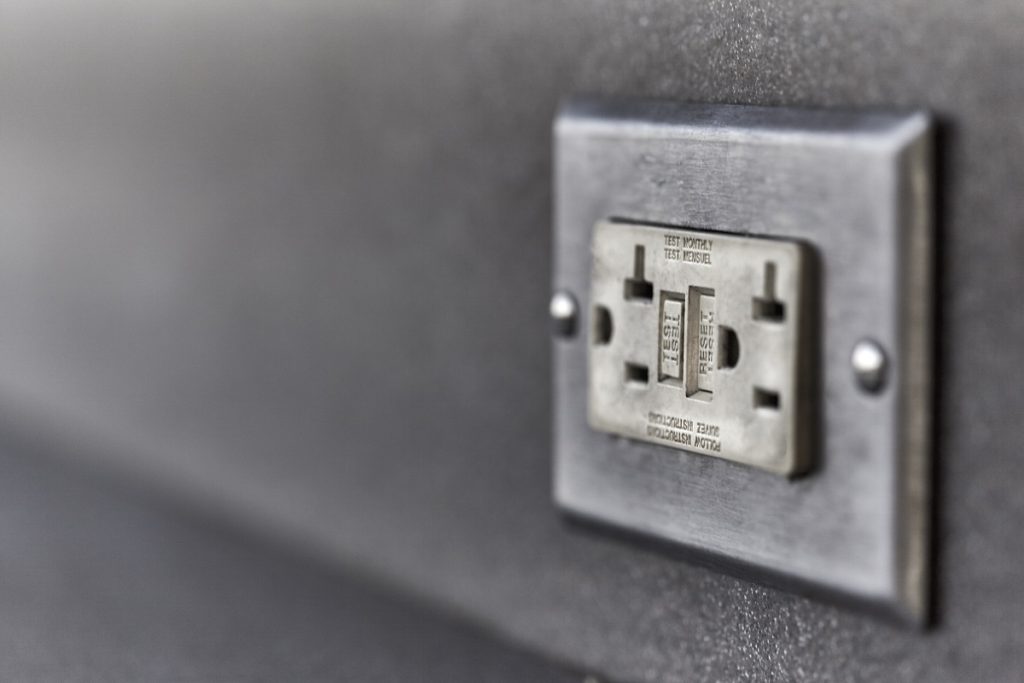Are you about to have a new bathroom installed or remodeled? You need to know if GFCI outlets are required in the bathroom. Since 1975, many cities in the United States have adopted electrical codes that require ground fault circuit interrupter (GFCI) outlets in bathrooms. Read on to find out more about their use and requirements.

Having GFCI protected outlets in your bathrooms is very important for safety reasons. However, houses that were built before 1975 did not require GFCI outlets in the residential bathrooms. If you have such a home and intend to improve the electrical, you'll need to touch up the wiring and install GFCI outlets.
Titan Plumbing And Electric can help you with this process. Our team of experienced electricians can ensure that you meet the guidelines set by the National Electrical Code (NEC) when installing GFCI outlets in your bathroom. Read this guide to learn more about what GFCI outlets are and why you must have these types of outlets in your bathrooms.
What is a GFCI Outlet?
A GFCI outlet is a safety device that quickly shuts off electricity to an outlet if it senses a disparity in the flow of current. This prevents electrocution and other related injuries, which are common in wet areas such as bathrooms.
Do You Require GFCIs in Your Bathroom?
According to the National Electric Code, you should have at least one GFCI-protected outlet in your residential bathroom. But it is better to install two to three GFCI protected outlets in every bathroom.
While GFCI protected outlets will provide shock protection, you can also get the same protection with a GFCI circuit breaker placed in your service panel. While you can have several GFCI protected outlets in a single bathroom, if you choose to have one GFCI outlet, it will have to be wired for multiple location protection. This will serve as protection for all outlets down the line on the circuit.
Look up Local Regulations Concerning GFCIs
Because some local codes may have different regulations from the NEC regulations, check with your local building department to see if they require GFCI outlets in the bathroom.
What Are The Differences Between a GFCI Receptacle And a Circuit Breaker?
While a GFCI receptacle performs the same function as a GFCI circuit breaker, you should get a licensed electrician to let you know which one is best for your bathroom.
A GFCI receptacle trips faster than a standard fuse or circuit breaker, and it will provide greater protection by shutting off the power to the outlet more quickly if there is a short in the circuit. A GFCI circuit breaker provides shock protection from any part of the house that uses electricity.
Below are some points to think about:
- GFCI receptacles are much easier to install than GFCI circuit breakers.
- GFCI receptacles have to be installed in places that are easy to access.
- A GFCI circuit breaker will cost you about $50 while a GFCI receptacle will cost about $15.
- A GFCI circuit breaker protects anything that is on the circuit while a GFCI receptacle only protects the outlet it is installed on and other outlets that are drawn from it.
In conclusion, GFCI outlets are essential for any bathroom and should be installed in order to protect you and your family from electric shock or other potentially dangerous electrical accidents. Be sure to speak with your contractor about installing these safety measures before starting a remodel or an installation project.
The Professionals at Titan Plumbing & Electric Can Help
When it comes to GFCI outlet installation and other electrical services, it pays to have a knowledgeable electrician on your side. At Titan Plumbing And Electric, we will make sure that all of the wirings is correctly installed and that the outlets are up to code. Contact us today at (813) 680-2075 for a free estimate today.


